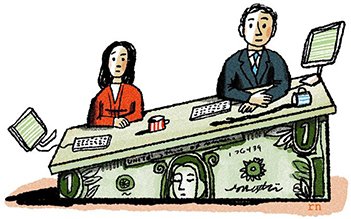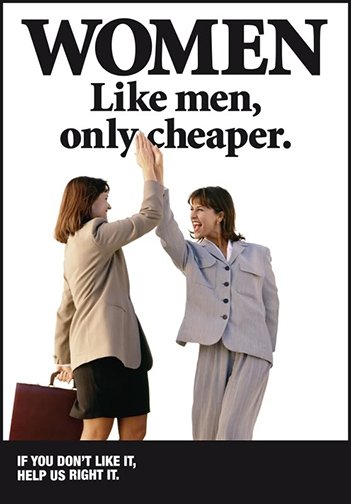Addressing The Gender Pay Gap
It is a wonderful time to be Irish. We have just become the first country in the world to legalise same-sex marriage by popular vote. The question was put to the people, and the people answered emphatically. Way to go Ireland! Friday, the 22nd of May, will always be seen as a monumental day for this country, and a huge step forward for equality. However, now is not the time to rest on our laurels. We still have a lot of work ahead of us if we truly want equal rights for all. This series will look to shine a light on the areas of our society that need change. This week, I take a look at the gender pay gap here in Ireland.

Equality has been at the centre of many debates over the last few years, particularly online. Support for same-sex marriage and feminism is rising exponentially and, although we still have a long way to go worldwide, you would think that we are on the right track to equal rights for all Irish citizens. You would be wrong. There are still many groups of people in this country who are not treated as equals, and one of these groups is women in the workplace.
Equal pay for equal work is not a new concept. It is something that women have fought hard to achieve for decades and, shamefully, the fight continues to this day. I have no doubts that the gender pay gap will one day be non-existent but progress has been slow and, worryingly, we seem to be going backwards. In March of this year, the European Commission published a report on equality between women and men in recent years. It reveals that Irish women, in the year 2012, were earning 14.4% less than men. In 2008, this figure was 12.6%. The findings of this report can be seen as a major blow to advocates of equal pay across the board.
This divide is evident from entry level to executive level. A survey conducted by brand experts Universum, have shown that the average starting salary expectations for a male graduate in an IT or engineering course are €45,000 while female graduates in the same industry anticipate a starting salary averaging at €37,000 (Side note: I’m now questioning my career path after seeing those starting salaries).

If you’re like me, you are struggling to find a logical reason as to why there is a massive €8,000 difference in salary expectations between male and female graduates. Well let me tell you, there isn’t one. In fact, if there was to be an inequality in salary expectations, it would be logical to assume that it would be in favour of women. After all, female students continuously out-perform their male counterparts in second and third level education. According to figures released by the State Examinations Commission, female students received higher grades in eleven of the thirteen major leaving cert subjects in 2014. Furthermore, a 2013 report by the Central Statistics Office has shown that women are more likely to have a third level qualification than men, with 55.3% of women between the age of 25-34 acquiring a qualification compared to 42.7% of men in this age group.
Those statistics don’t lie. On average, women out-perform men at school and university. And yet, the European Commission report mentioned above has revealed that only 11% of the board members of Ireland’s largest publicly listed companies are female and only 27% of our senior ministers are female. This inequality has spread through all areas of employment in this country and I think it’s time we had a serious discussion about how to correct this imbalance. It’s clear that when it comes to the Irish workforce, women face challenging and unnecessary obstacles. I haven’t even touched on sexual harassment and gender stereotypes, which could (and probably will) have its own separate article.
It is my belief that the government and employers have failed the women in this country. We need to put measures in to place that protect the rights of women in the workforce and ensure that they are treated as equals. What I don’t understand is that this is not a difficult concept to grasp. Equal pay for equal work. If a company pays one of its male accountants €50,000 a year, then the female accountants at that company should expect to also get paid €50,000 a year. It really is that simple.
The gender pay gap is an injustice that has been allowed to carry on for far too long. The marriage equality referendum has lit a fire under the backsides of the public. We know we have the power to make some serious changes to better the lives of so many people. We can no longer sit idly by and accept the status quo. We have started a long, arduous journey to a better and equal world and it is a journey that we must complete. Future generations will look back and see this as a pivotal moment in Irish history. Let’s give them a moment worth remembering.
